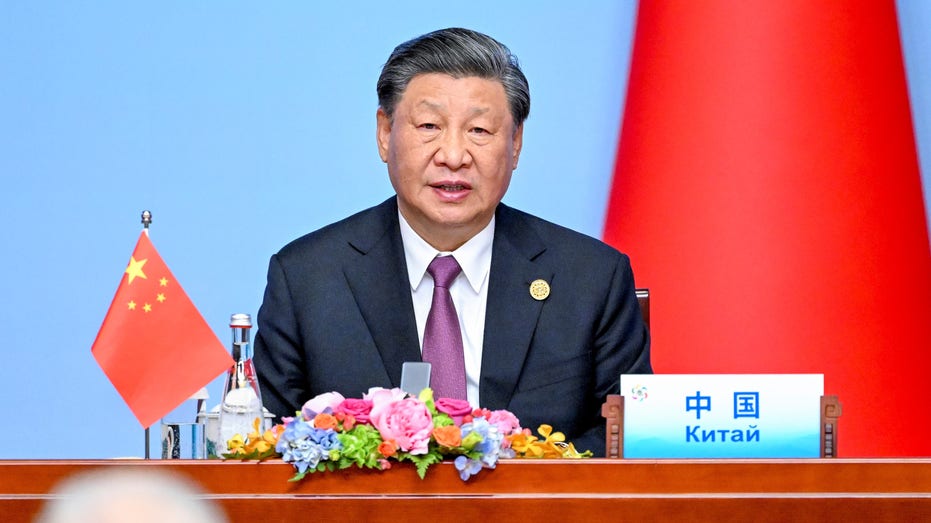U.S. companies that give China artificial intelligence-driven technology to violate the human rights of its citizens need to be punished by Congress with prison terms for U.S. executives, a witness told senators in a hearing Tuesday.
Geoffrey Cain, senior fellow at the Foundation for American Innovation, warned at a Senate Judiciary subcommittee hearing that AI is helping to power China’s growing “surveillance state” and said U.S. companies have contributed to this human rights problem.
“China built its AI surveillance apparatus with the connivance and complacency of major American technology firms,” Cain said in his prepared remarks. “The science corporation ThermoFisher, for example, was caught selling DNA collection equipment directly to Xinjiang police authorities, who used them for mass gathering of genetic data on the minority Uyghur population.
“Since the late 1990s, Microsoft has established itself as the training ground for China’s AI elites through its Beijing-based laboratory, Microsoft Research Asia,” he added. “The laboratory has trained many of the AI leaders and developers who went on to found or join the executive leadership of rights-abusing firms, such as Sensetime, Megvii and iFlyTek.”
HOUSE DEMANDS AI UPDATE FROM PENTAGON AS THREATS FROM CHINA, OTHER ADVERSARIES PILE UP
Cain’s group, the Foundation for American Innovation, said it was founded to ensure technology is “aligned to serve human ends: promoting individual freedom, supporting strong institutions, advancing national security, and unleashing economic prosperity. But he said China has so far used AI to inflict human rights abuses on religious minorities in China.
“The Chinese Communist Party (CCP) has engineered a vast AI-powered surveillance system literally called ‘Sky Net,’” he said. “It runs AI-powered ‘alarms’ that notify the police and intelligence services when someone unfurls a banner, when a foreign journalist is traveling to certain parts of the country and when someone from an ethnic minority is present.
“The government accuses entire groups, such as Muslim Uyghurs, of posing a terrorist threat and relentlessly persecutes them with the use of AI tools.”
Cain said that while tech leaders, including Sam Altman of OpenAI, have urged closer cooperation with China, Chinese officials have shown there’s no reason to work with China at all.
“We must abandon the misguided idealism of working with Chinese companies and government bodies with the hope that AI will change the political system, allow for the opening of democratic discourse, and create safer global AI regulations,” he said. “Rather than helping advance innovation, we will be doing the world a disservice by handing the keys to the CCP.”
Instead of working with China, Congress should be looking to ensure the U.S. remains the leader on AI innovation and is in a position to draw talent and resources away from China.
“The most advanced American technologies and investments must not be allowed to flow in the direction of China,” he said. “We must work against China’s ambitions to develop advanced AI systems, influence global standards and oppress dissidents around the world.”
The U.S. should also punish companies that help China, he added.
“So far, American technology giants have faced no punishment for their involvement in China’s surveillance state,” Cain said. “This subcommittee may consider drafting a bill that requires public corporations to publish their due diligence reports on their activities in China and the risks they have encountered with regards to human rights there.
“The subcommittee may also consider drafting a bill that criminalizes specific American business activities in China that are likely to support, directly or indirectly, human rights abuses by the CCP,” he added. “This would include prison time for American business executives involved in helping develop any form of AI in partnership with a Chinese entity if the CCP will likely use that technology for the oppression of human rights and democratic values.”
Congress has taken an active interest in regulating AI this year, but so far has yet to pass anything close to a comprehensive bill that addresses various issues raised by companies and interest groups.
Senate Majority Leader Chuck Schumer, D-N.Y., has been meeting with companies as he considers a broad AI bill in the Senate but has yet to introduce anything.
























